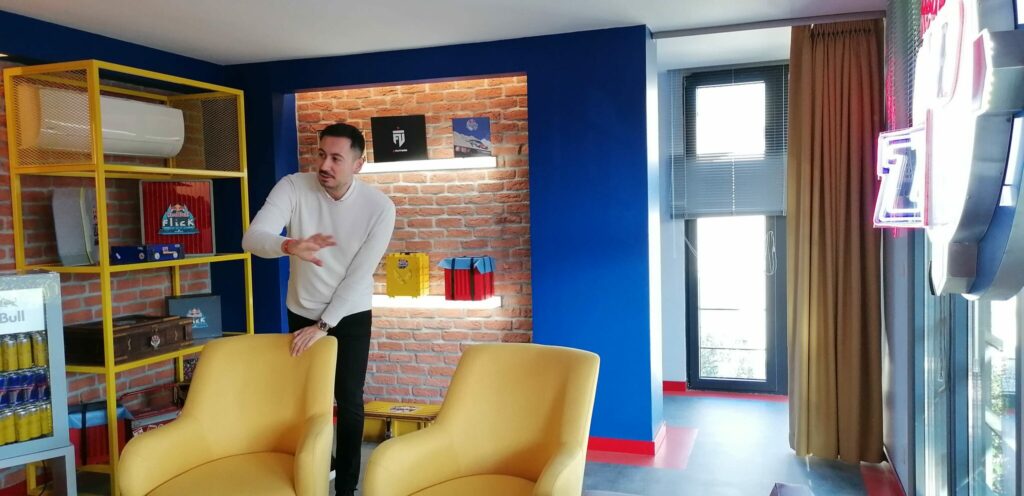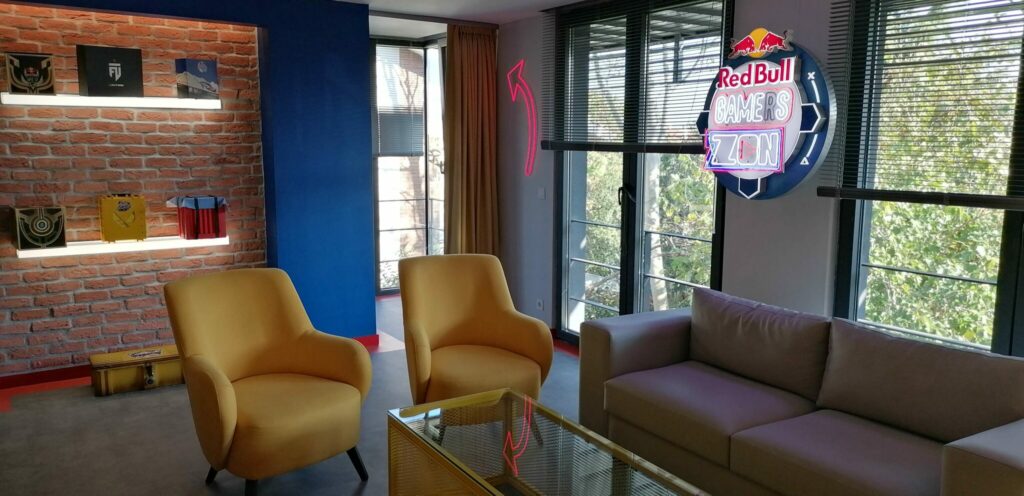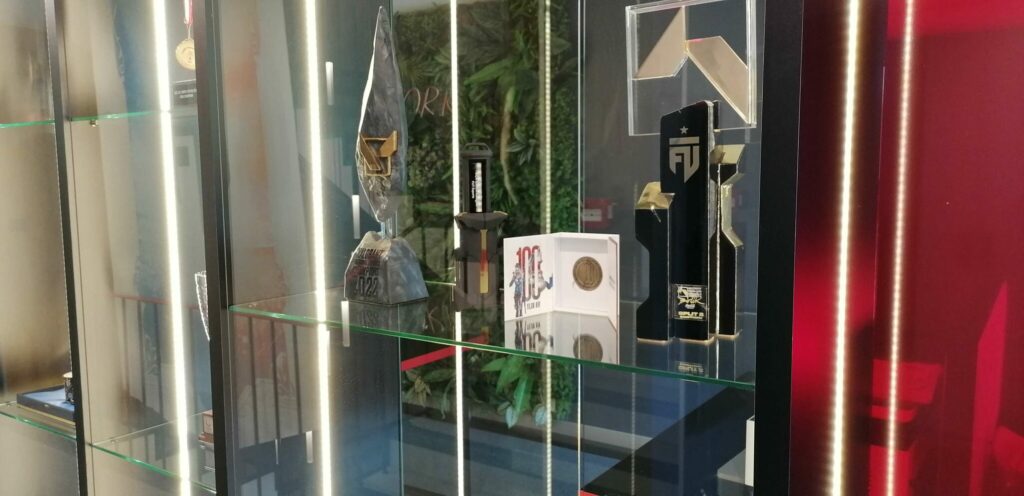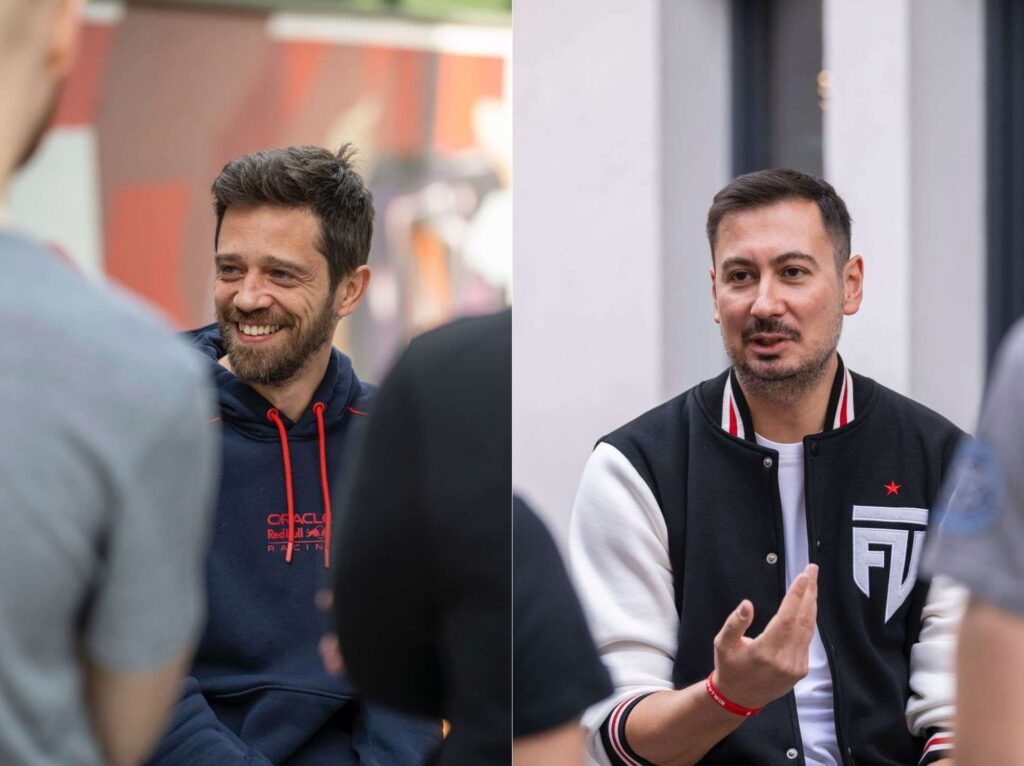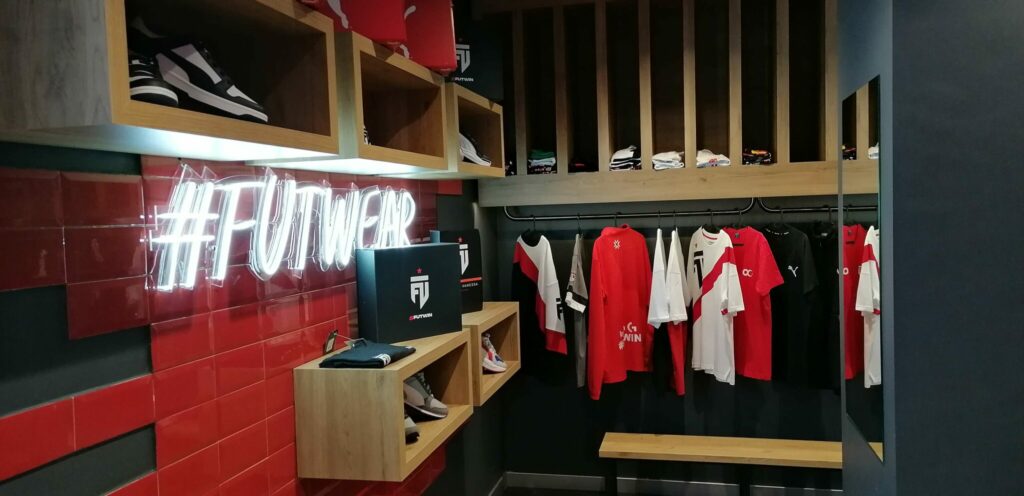We toured Turkish esports organization FUT’s gaming house and got an insight into why a facility like this is essential to the team.
FUT Esports is one of the largest esports organizations in Turkey and after initially competing in FIFA, moved on to compete in VALORANT, Dota 2, PUBG Mobile, and a dozen other titles. An international competitor and a local powerhouse, FUT has competed in European and MENA competitions, straddling the bridge between both regions, much like Turkey itself.
As part of the RedBull Campus Clutch World Finals in Istanbul, Turkey, esports.gg was invited to tour the FUT House and see how the country’s premier esports team prepares for success. We also sat down briefly with CEOs Sinan Dursunoglu and Cesur Sunnetcıoglu, childhood friends who built the organization together, to discuss the unique challenges building an esports org in Turkey presents.
Origins of the FUT house
FUT started out as a sports news app called Futbolist in 2014. Two years later, the company decided to invest in esports, signing its first FIFA player, İsopowerr, in 2017. FIFA was a natural choice for FUT, as the original app’s focus had been on Football, and both Sinan and Cesur are Galatasaray S.K. fans, one of Istanbul’s three famous football clubs.
Since then, FUT has ballooned in size, now having almost 70 players, along with 133 people on staff. This expansion has meant that a team house isn’t just needed - it’s essential. FUT moved to the facility in 2022, around the same time as their dramatic rebrand from Futbolist to FUT.
The FUT house is currently the largest gaming house and esports facility in Europe, with its 120,000 sqft of space beating Team Liquid’s Utrecht Alienware Training Facility (114,000 sqft). However, as Sunnetcıoglu noted, the FUT house would, unfortunately, have to give up that title next year when Unicorns of Love’s massive Hamburg facility is fully completed.
Even with this size, the FUT house has a cozy atmosphere. With accommodation for two dozen players, the facility spans five stories. Bedrooms and streaming facilities are on the top floor, more bedrooms and the Red Bull Gamer Zone on the third floor, offices and trophy displays on the second floor, more office space and kitchen on the first, and finally, the gaming rooms in the basement.
This structure, especially in the basement, has been developed over time. While there are two large gaming rooms, with enough space for 10 players each, there’s a shared couch area for VOD review, a physio room, a dedicated room for team management, and a mobile gaming room.
Some of the spaces, like the mobile gaming room, were developed because of a unique need. FUT’s PUBG Mobile team was the best in Turkey, quickly breezed through an qualifier, and headed to their first international event, only to be greeted by a problem: The team had only ever played laying on their beds or lounging on sofas, and couldn’t play on the desk at the tournament. After that, FUT decided they needed a dedicated mobile room for practice.
Other parts of the house were more deliberate in execution. For instance, when a new player joins the team, they’re led up an external staircase to an entrance by the trophy room. The first thing they see is their picture and name projected on a screen in FUT’s gear before they walk past a hall decked with dozens of trophies. It’s a deliberate introductory experience to welcome the newcomers.
Likewise, 13 cameras throughout the house are used for both security and content, meaning the team can leverage anything funny that happens off-the-cuff to create more content for fans. FUT’s fans are some of their greatest assets, and almost have a hooligan-like passion - just like the fans of Galatasaray. To celebrate these dedicated supporters, FUT recently opened a new membership, where fans can receive exclusive content, access to events, and can win the chance to travel with the team.
Related articles
FUTs unique challenges
Even with a huge facility and large presence in Turkey, Europe, and Asia, FUT still faces unique challenges because of its location. Istanbul is a non-standard location for an esports org compared to a more central European city. So, what problems does FUT face? CEO Sinan Dursunoglu explained that it’s a mixed bag: “I think we have both advantages and disadvantages.”
“On the advantage side, we have a huge population. The young population in Turkey is huge. We have 35 million people under the age of 30. So it creates a huge pool for the players. Turkish fans love to play games and they want to do it in a competitive way, so the advantage is we have a huge pool for every game.”
“For the disadvantages, we are in the middle of the Europe and the Middle East, so we’re just like a bridge, and it has some disadvantages. In order to qualify for the a world finals or the European finals we have a different road, different path, which is I think harder.”
“The most challenging part is just keeping the players in the game, in the team. Because if any offer from Europe is coming, it’s definitely higher than what we can afford"
We asked what made it more difficult, and Sinan elaborated: “It’s harder from our side because of the teams, but also it’s related to the economic side of it. The Turkish economy has not been doing well for the past three years. It creates some problems, but from our side. But we have plans.”
CEO Cesur Sunnetcıoglu highlights another issue: “The most challenging part is just keeping the players in the game, in the team. Because if any offer from Europe is coming, it’s definitely higher than what we can afford, especially at the beginning, like a Tier 2 level. Any offer coming from a European team is going to be better than a Turkish team, so that’s the challenge.”
“And that’s why we built this FUT House, and why we have the physiotherapists and everything. So we’re just trying to fill up the gap with the other advantages that we can offer to the players.”
Beyond this, another difficulty came from being that bridge to another region. Sinan explained: “We have invitations from the Middle East, a lot of tournaments are going there also. And because we are like a bridge team, we have these invitations from that side. Also we have very good ties with EU because we play in the European side. We play in the leagues and in the tournaments of the EMEA, mostly in the European side. So we have this, let’s say, this bar, this high rank, because [EU teams] are more established teams, more professional players, more disciplined players. This is the most important thing, I think. So we are trying to set ourselves to European level, but also we have the opportunity to have the tournaments also in our region.”
Cesur had a more holistic answer. In his opinion, the advantage was being able to bring Turkish cultural values to the European scene: “Culturally, we’re in the middle. We have this important thing called family values. Like we are all like families, [Sinan] is like almost a big brother of every player we have, like they come up with their problems and stuff. That’s something you don’t see in European teams so much.”
“Europe is like you’re a player, you play for the team, you have a professional contract, you fulfill the contract and that’s all. But in Turkey you have to deal with family problems, you have to deal with economical problems, you have to like to talk with the players. It makes it fun for us, it’s really exciting for us to be a part of their lives, but it’s difficult for someone to understand if they don’t have that culture.”
Stick with esports.gg for more VALORANT and general esports news!
